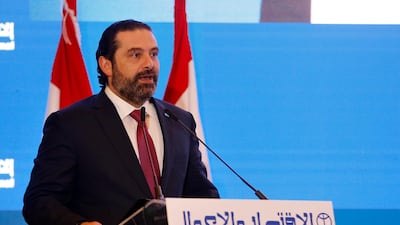On Friday, the Lebanese cabinet drafted its budget for 2019, which will be referred to parliament for approval next month. This small, but strategically important nation is the third-most indebted in the world, and its crumbling economy is in dire need of chance. Economic reform is also the key with which Beirut will unlock the $11 billion pledged by foreign donor countries in Paris last year at the CEDRE conference. The draft budget is set to tackle these issues by reducing the country's massive deficit and cutting back on public spending. This is a positive step, which Prime Minister Saad Hariri says will "lead the Lebanese economy to safety".
Lebanese political parties operate along sectarian lines, but none of the 19 recognised sects form a majority of the population or in parliament. This means that the political landscape is deeply fragmented, making it almost impossible to reach consensus, even on important matters such as the country's economy. That cabinet members managed to set their differences aside and focus on fixing the nation's economy is a feat in and of itself. But the fact that we are already halfway through the year and that it took 19 cabinet meetings to reach an agreement is a clear indication that there is still much room for improvement. Endemic bureaucracy and a dysfunctional political system have hobbled the budget negotiations since the start. After all, it took nine months for Mr Hariri to even form a cabinet that could begin to tackle Lebanon's deeper problems.
Now, the Lebanese people are outraged by what promises to be the most unforgiving budget in the nation’s history. Rumours of salary cuts for public-sector employees and bank workers, and of reduced pensions for former military personnel, have sparked nationwide strikes. Among those who have taken to the streets, anger about paying the price for the incompetence of their leaders is common.
For decades and at all levels, Lebanon has been plagued by economic mismanagement and corruption. For example, even though Lebanon has had no functioning train lines since the 1970s, its railway authority receives government funding and still has a number of paid employees. Last Thursday, the Finance and Budget Committee also revealed that more than 5,000 new public-sector jobs were handed out since August 2017, in clear violation of a government hiring freeze. Meanwhile parliamentarians continue to receive their full salary for life, adding an unnecessary expense to the Lebanese budget. In light of these facts, it is clear that cutbacks must be accompanied by measures to tackle inept management, end corruption and rationalise public spending. Otherwise, ordinary, hard-working people will be condemned to lives of austerity while others continue to profit.

